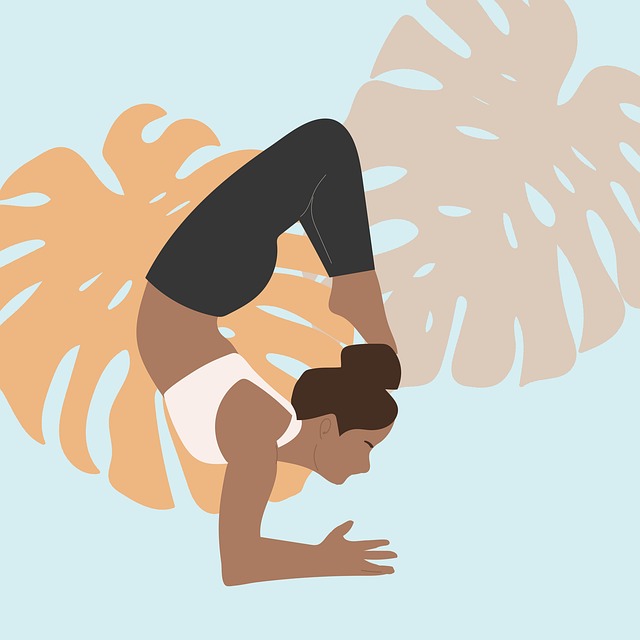Chronic stress, a persistent state of anxiety, poses significant risks to physical and mental health if left unaddressed. Effective stress management, involving recognizing triggers and adopting healthy coping mechanisms like regular exercise, mindfulness, adequate sleep, and social support, is crucial for long-term health improvements. Techniques such as meditation, deep breathing exercises, and yoga enhance mental clarity and resilience, reducing the negative impact of chronic stress. Building consistent practices like mindfulness meditation, moderate exercise, and emotion processing through journaling fosters resilience, prevents burnout, and leads to improved health outcomes, including reduced stress levels and better sleep quality.
Small changes can have profound effects on long-term health. This article explores how understanding and managing chronic stress, incorporating mindfulness, adopting healthy habits like proper nutrition, exercise, and sleep, and building resilience through consistent practice lead to significant improvements in overall well-being. By implementing these effective stress management techniques, you can transform your health and quality of life.
- Understanding Chronic Stress and Its Impact on Health
- Incorporating Mindfulness and Relaxation Techniques for Stress Management
- Adopting Healthy Habits: Nutrition, Exercise, and Sleep
- Building Resilience and Long-Term Well-being Through Consistent Practice
Understanding Chronic Stress and Its Impact on Health

Chronic stress, a constant state of heightened anxiety or tension, is a silent yet powerful force that can significantly impact our overall health and well-being. It differs from acute stress, which is a short-term response to a specific challenge or threat. Over time, if left unaddressed, chronic stress can lead to a range of physical and mental health issues. This is because the body’s stress response, when activated frequently, can disrupt various bodily functions and systems.
Effective stress management is key to maintaining long-term health improvements. It involves recognizing triggers and developing healthy coping mechanisms. Simple yet powerful strategies such as regular exercise, mindfulness practices, adequate sleep, and social support networks play a crucial role in managing stress levels. By adopting these practices, individuals can mitigate the adverse effects of chronic stress on their bodies, fostering a foundation for improved overall health.
Incorporating Mindfulness and Relaxation Techniques for Stress Management

Incorporating mindfulness and relaxation techniques is a powerful strategy for managing stress, one of the leading contributors to various health issues. These practices allow individuals to develop a deeper connection with their thoughts and emotions, enabling them to respond to stressful situations more calmly and effectively. By dedicating just a few minutes each day to activities like meditation, deep breathing exercises, or yoga, people can reduce the detrimental impact of chronic stress on both mental and physical well-being.
Effective stress management through mindfulness fosters better resilience and overall health improvements. It helps lower blood pressure, improve sleep quality, and enhance cognitive function. Moreover, it promotes a positive mindset, leading to increased happiness and life satisfaction. Embracing these simple yet profound techniques is a significant step towards long-term health enhancements and a more balanced, peaceful lifestyle.
Adopting Healthy Habits: Nutrition, Exercise, and Sleep

Adopting healthy habits is a cornerstone of long-term health improvements, encompassing three key pillars: nutrition, exercise, and sleep. Proper nutrition involves consuming a balanced diet rich in fruits, vegetables, whole grains, lean proteins, and healthy fats, while limiting processed foods, sugars, and saturated fats. This not only supports overall well-being but also helps manage conditions like heart disease, diabetes, and obesity.
Regular physical activity, such as aerobic exercises, strength training, and flexibility routines, is another vital component. Aim for at least 150 minutes of moderate aerobic activity or 75 minutes of vigorous activity weekly, coupled with muscle-strengthening exercises on two or more days. Exercise not only aids in weight management but also boosts mood, reduces stress, and improves cognitive function. Adequate sleep, typically 7-9 hours for adults, is essential for the body to recover, repair tissues, consolidate memories, and regulate hormones related to appetite and stress—all of which contribute to effective stress management and overall health.
Building Resilience and Long-Term Well-being Through Consistent Practice

Building resilience and long-term well-being go hand in hand with consistent practice of effective stress management techniques. Chronic stress can have detrimental effects on both physical and mental health, but incorporating small, regular practices into your routine can make a significant difference over time. Whether it’s dedicated moments for mindfulness meditation, engaging in moderate exercise several times a week, or keeping a journal to process emotions, these consistent actions contribute to a more resilient mindset and overall better health.
By consistently practicing effective stress management, individuals cultivate coping mechanisms that enhance their ability to navigate life’s challenges. This resilience is key to preventing burnout and promoting long-term health improvements. Over time, these small changes can lead to reduced stress levels, improved mood, better sleep quality, and increased productivity—all of which contribute to a healthier, more balanced lifestyle.
Incorporating small, consistent changes in our daily routines can significantly impact our long-term health. By understanding the effects of chronic stress, adopting mindfulness practices, and implementing healthy habits like balanced nutrition, regular exercise, and adequate sleep, we empower ourselves with effective stress management tools. Building resilience through consistent practice not only enhances our physical well-being but also enriches our overall quality of life. Let’s embrace these simple yet powerful strategies to foster a healthier, happier future.
